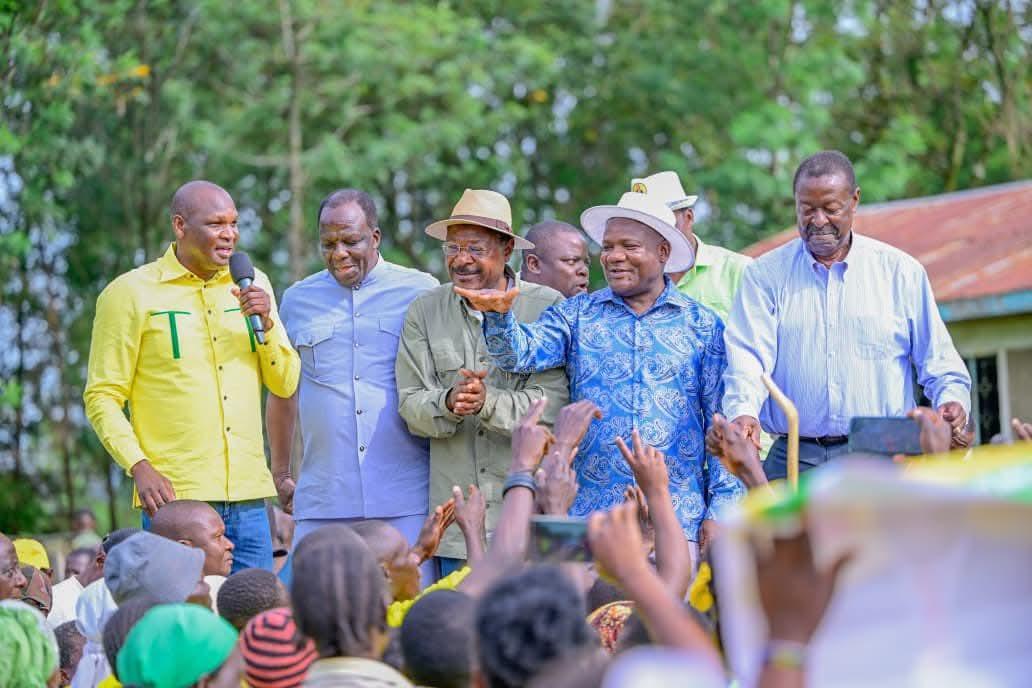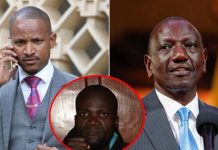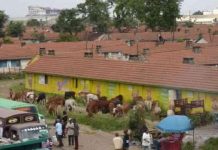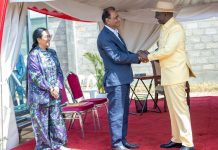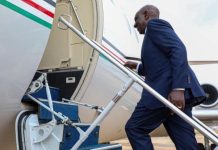Africa-Press – Kenya. The battle for Malava constituency has tightened into a fierce two-horse race, with the November 27 by-election emerging as a major test of the strength and unity of President William Ruto’s broad-based government.
The contest pits UDA candidate David Ndakwa, the immediate former minority leader in the Kakamega county assembly, against DAP-K aspirant Seth Panyako, a vocal government critic.
Both men have embarked on intense grassroots campaigns across the constituency’s seven wards, each determined to claim the seat left vacant following the death of MP Malulu Injendi.
For the last two weeks, Ndakwa has run a vigorous charm offensive across Malava, structuring his strategy around continuity, experience and development. His pitch leans heavily on his two-term record as West Kabras MCA, which he repeatedly cites as proof that he is “tested, tried and ready”.
“All our sitting MPs in Malava since 2007 have been in government. Nobody should lie to you that you can get anything good from the opposition,” Ndakwa has told crowds in Manda-Shivanga, Kabras South, Chemuche and Butali wards.
“I urge my Malava people to vote for me because I already have experience and am not an experiment,” he adds, positioning himself as the natural heir to Injendi’s legacy.
Ndakwa’s campaign has drawn an imposing line-up of senior leaders in the Kenya Kwanza administration.
Prime Cabinet Secretary Musalia Mudavadi, National Assembly Speaker Moses Wetang’ula, Kakamega Governor Fernandes Barasa and Cooperatives CS Wycliffe Oparanya have all appeared on the campaign trail, an unusual blend of county and national heavyweights rallying for a single candidate.
Towering above the political machinery is President William Ruto’s influential aide Farouk Kibet, who has quietly become the most visible figure in Ndakwa’s campaign.
Farouk has camped in the constituency since Ndakwa won the party ticket. His visibility, strategic mobilisation and assertive messaging have reshaped the campaign, injecting organisation and confidence into UDA’s machinery.
Farouk’s presence has electrified the Kenya Kwanza base and unsettled the opposition. For nearly a week, he has led dawn-to-dusk tours across the constituency, mapping out what many observers now describe as one of the most organised political offensives in recent by-election history.
“Ndakwa has direct access to structures that deliver major projects,” he told the residents.
At 6:32 am at Lukova in Manda-Shivanga ward on Friday, Kibet rallied residents, urging them to honour Injendi’s memory by supporting Ndakwa.
The early-morning stop set the tone for a day-long mobilisation that cut across three wards.
Hours later at Machemo in Chemuche ward, Farouk again took the podium, this time alongside MPs Innocent Mugabe and Benjamin Washiali, telling residents that Ndakwa represented “the stability that Malava needs, not the gamble that others want to force on the community”.
By afternoon, Kibet had joined Mudavadi, Wetang’ula, Oparanya and Barasa in a massive rally at Mahira, South Kabras, where the leaders, united in message and purpose, urged residents to turn out in overwhelming numbers for Ndakwa.
Farouk’s ability to navigate political factions, mobilise local networks and maintain a consistent presence has become one of UDA’s strongest weapons in the race.
His late-evening commissioning of a floodlight at Chegulo Market, as part of Ruto’s rural lighting programme, offered a practical demonstration of national government goodwill, giving Ndakwa a tangible development win to showcase.
Local traders cheered as the high-mast lights came on, a scene that Ndakwa’s team quickly amplified as evidence of “leadership that works”.
On the other side of the race, Panyako has anchored his campaign on resistance to government influence. He cast the by-election as a referendum on Kenya Kwanza’s performance.
Panyako, who has branded himself the “people’s candidate,” argues that his election would restore independence to Malava, free from what he calls undue state infiltration. “If you vote for me, you are voting for development. You people should not accept to be controlled by people who do not come from Malava,” he said during one of the rallies.
He accuses the government of failing on essentials, including the economy, agriculture and service delivery. His message has resonated with sections of the youth and disgruntled voters tapping into anti-establishment sentiment.
To bolster his push, Panyako has attracted high-profile backing from opposition leaders, creating a counter-force to the UDA campaign. Among those backing him are Eugene Wamalwa, George Natembeya and Rigathi Gachagua.
Their strategy has been to delegitimise the government’s economic narrative while portraying Ndakwa as an extension of state power. As both machines crank up their ground operations, Malava finds itself at the centre of a political showdown far bigger than a parliamentary seat.
For Kenya Kwanza, a win would reinforce its growing influence in Western Kenya and strengthen cohesion within the broad-based government. For the opposition, victory would signal a resilience that challenges the ruling coalition’s expanding footprint.
With only days left, residents across Kabras North, West Kabras, Chemuche, Butali, Manda-Shivanga, South Kabras and Shirugu-Mugai wards are bracing for what may be the most closely fought mini-poll in recent history.
The candidates have only today to campaign ahead of the poll.
For More News And Analysis About Kenya Follow Africa-Press

